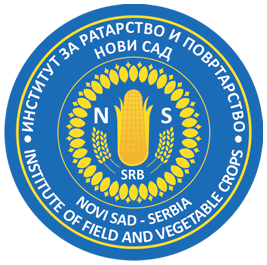Prikaz osnovnih podataka o dokumentu
Genetic markers in seed quality control in Serbia
| dc.creator | Nikolić, Zorica | |
| dc.creator | Ignjatov, Maja | |
| dc.creator | Milošević, Dragana | |
| dc.creator | Jovičić, Dušica | |
| dc.creator | Petrović, Gordana | |
| dc.creator | Tamindžić, Gordana | |
| dc.date.accessioned | 2023-03-08T10:33:13Z | |
| dc.date.available | 2023-03-08T10:33:13Z | |
| dc.date.issued | 2019 | |
| dc.identifier.isbn | 978-3-906549-63-7 | |
| dc.identifier.uri | http://fiver.ifvcns.rs/handle/123456789/3331 | |
| dc.description.abstract | Genetic markers have been used at the Institute of Field and Vegetable Crops Novi Sad (tFVCNS) for many years, both for seed quality control and for research purposes. The first laboratory in Serbia that started applying the electrophoresis of isoenzymes was at the IFVCNS, in 1986. The distinct advantage of laboratory seed purity control is that the seed can be inspected until the next sowing at different stages, before harvesting or ripening, during or after seed processing. In addition to conventional laboratory methods in identifying pathogens, serological and molecular methods are used nowadays. The main feature of these methods is that they are fast, reliable and suitable for analysing a large number of samples. Determination of the presence and distribution of viral and bacterial diseases of paprika (Capsicum annuum L.) were performed using serological and molecular detection. ln addition to determining the presence and distribution of pepper virus, identification of the most important and most frequent virus isolates was performed using the reverse transcription method followed by a polymerase chain reaction (RT-PCR). Differentiation of Xanthomonas spp., the causative agent of the bacterial pungency. of pepper, was carried out using restriction fragment length polymorphism (RFLP) analysis of the hrp gene (HrpB region) and the PCR method, thus confirming the similarity of studied strains with the species X. euvesicatona. According to the valid legislation in Serbia, commercial cultivation of genetically modified organism (GMO) crops is not allowed. The laboratories involved in GMO analyses have been accredited according to ISO I IEC 17025:2006 standard and ISTA standards, and authorised by the Ministry of Agriculture, Forestry and Water Management for analysis of seeds and product consignments of plant origin from import. All laboratories use internationally recognised methods and participate in testing the expertise for GMO analysis in inter-laboratory comparisons. Our laboratory for seed testing has conducted several studies in order to demonstrate the presence and quantity of Roundup Ready soybean in crude oil, assess DNA degradation, DNA amplification, and GMO quantification during tofu production, to report on the validity of labels on imported food samples from different countries and uptake of GM food derived from soybean into the food chain in Serbia. | sr |
| dc.language.iso | en | sr |
| dc.publisher | Zurich : International Seed Testing Association | sr |
| dc.relation | info:eu-repo/grantAgreement/MESTD/Technological Development (TD or TR)/31030/RS// | sr |
| dc.rights | restrictedAccess | sr |
| dc.source | ISTA Seed Symposium Abstracts, 32 ISTA Congress, Hyderabad, India, 26-28 June 2019 | sr |
| dc.subject | genetic markers | sr |
| dc.subject | PCR | sr |
| dc.subject | Capsica annuum | sr |
| dc.subject | Xanthomonas spp. | sr |
| dc.subject | RT-PCR | sr |
| dc.subject | polymorphism | sr |
| dc.subject | RFLP | sr |
| dc.title | Genetic markers in seed quality control in Serbia | sr |
| dc.type | conferenceObject | sr |
| dc.rights.license | ARR | sr |
| dc.citation.spage | 62 | |
| dc.identifier.rcub | https://hdl.handle.net/21.15107/rcub_fiver_3331 | |
| dc.type.version | publishedVersion | sr |


